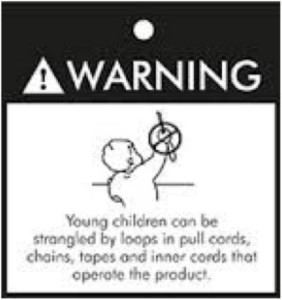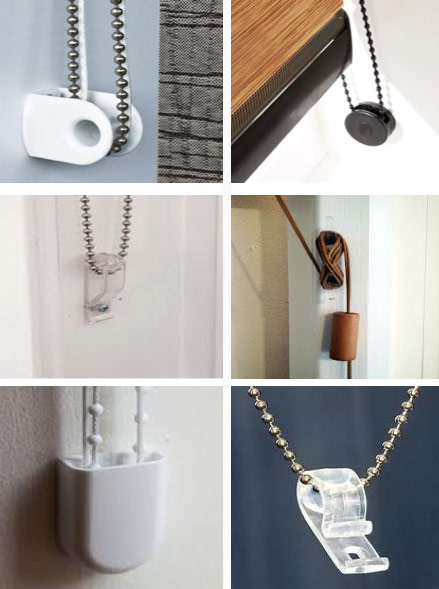Do you own rental properties?
Blind Cord Safety
Book your Window Cord Safety assessment today from $69.
Call: Ngu 0411 452225
Email: nublinds@ymail.com

Blind Cord Safety
What Nu Blinds can do for you;
- Inspect all windows and doors with corded blinds and/or curtains
- Install safety devices to meet safety regulations
- Report and quote on replacement blinds that are damaged and/or don’t meet safety standards
- Quote and Install new blinds
- Install new blinds
- Repair blinds
- Provide certificate of compliance (Valid for 12 months or upon new occupancy of premise)
Why you ask;
- Protecting babies and young children from strangulation
- It’s the law (mandatory standard 30 December 2010)
- Comply early to save loss of income (The regulation commences on 1 January 2015 )
- Reduce the chances of Public liability
- Insurance policy claim protection
Some samples of cord safety devices.
QLD: Blind and curtain cord safety reminder
Date: 11th February 2014
The Office of Fair Trading is reminding Queenslanders about the dangers of blind and curtain cords after the tragic deaths of two New South Wales toddlers in the last fortnight.
Fair Trading Executive Director Brian Bauer stressed the importance of parents and caregivers identifying blind and curtain cord hazards around the home.
“The dangers posed by blind and curtain cords are not always in the forefront of a parent or caregiver´s mind,” Mr Bauer said.
“Close supervision is critical as it can only take a moment for a child to become entangled in a blind or curtain cord and strangle.
“At least 12 Australian children have died since 2000 after being caught in blind or curtain cords.
“A mandatory standard for blind and curtain cords came into effect in 2010. It requires manufacturers to include a warning label about cords on the packaging and attached to the cord itself.
“Window covering cords should hang no lower than 160 centimeters from the ground, and should be tied up against a wall using hooks or cleats.
“Importantly, cots should not be located under a window where children can reach the blind or curtain cords.”
The Legislation
The Australian Competition & Consumer Commission (“ACCC”) identified a major hazard with loop cord systems as young children face a risk of strangulation.
As a result the ACCC issued Mandatory Standards known as The Trade Practices (Consumer Product Safety Standard – Corded Internal Window Coverings) Regulations 2010 (“The Trade Practices Mandatory Safety Standards”) which regulate the design, construction and labeling of corded window furnishings.
From 1 July 2011 all suppliers, including lessors, must comply with The Trade Practices Mandatory Safety Standards in relation to any corded window covering such as Vertical, Venetian, Holland and Roman Blinds and Curtains (including pencil pleat “ready mades” and pencil pleat tape) and any fitting containing cords, such as Curtain Rods and Tracks.
Landlord Obligations
You should be aware that a breach of The Trade Practices Mandatory Safety Standards carries penalties of up to $220, 000 for individuals and $1.1Million for companies, as well as the risk of compensation claims.Also, as an Owner of the property you have a duty of care at common law which may expose you to litigation should a foreseeable injury occur as result of you failing to take simple steps to remove or reduce the risk of harm.
Landlords are responsible for ensuring that the property and the products they provide work effectively and safely and that products come with instructions and safety information where necessary. This includes window coverings with cords.
The new mandatory standards set by the ACCC apply to “suppliers”. A “supplier” includes anyone in the business of leasing the goods. So as a Lessor, you are legally responsible for ensuring that the corded window furnishings you “supply” meet the mandatory safety standards.
The new mandatory standards set by the ACCC make it clear that window furnishings with looped cords of 220mm or greater that hang at or lower than 1600mm from the floor pose a risk of strangulation to an infant or young child. It follows that if the ACCC foresee the risk and regulate by prescribing new mandatory standards that a reasonable man should also foresee those risks.
Even if the Tenants have no children, it is reasonably foreseeable that they might have children visit the home from time to time.
Additionally, the obligations on the Owner set out in the Residential Tenancies Rooming Accommodation Act are reflected in the Standard General Tenancy Agreements.
So an Owner will be in breach of the RTRA Act and in breach of contract by failing to repair window coverings or providing window coverings that do not comply with health and safety regulations provided that the window coverings are part of the premises,( known as fixtures), or an inclusion.
Insurance policies vary, but most have an exclusion clause that means that the insurance company does not have to pay out where the Owner breaks the law or is aware of the problem and chooses not to act to reduce the risks of harm.
Leaving aside any question of legal liability, what Owner would want to risk the life of a child and live with the knowledge that a tragedy could have been so simply avoided?




